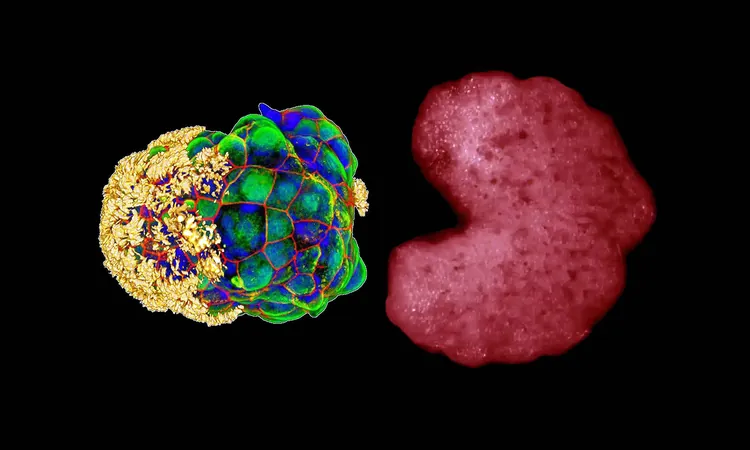
The Hidden Dangers of Magnesium Deficiency in Women: What You Need to Know
2024-09-26
Introduction
Magnesium is an essential mineral that plays a critical role in numerous bodily functions, particularly in maintaining women's health. Women require adequate magnesium for hormone regulation, bone density, cardiovascular health, and much more. A deficiency in this crucial nutrient can lead to an array of health issues, including muscle cramps, anxiety, heart problems, and complications during pregnancy.
The Alarming Prevalence of Magnesium Deficiency
Recent research highlights the alarming prevalence of magnesium deficiency. A study published in the Frontiers in Nutrition in August 2024 discovered a significant link between magnesium intake and the risk of pelvic inflammatory disease, showing how critical this mineral is to reproductive health. Additionally, another study from 2023 published in Health Science Reports indicated that magnesium supplementation could improve symptoms of polycystic ovary syndrome (PCOS), including hyperandrogenism and sleep quality, which often plagues many women.
Importance of Magnesium Throughout a Woman's Life
Magnesium is vital throughout a woman's life—during menstruation, pregnancy, and menopause. It is crucial for emotional well-being, offering a potential remedy for premenstrual syndrome (PMS). Research demonstrates that magnesium can regulate estrogen and progesterone levels, mitigating PMS symptoms like mood swings and cramps. When combined with vitamin B6, magnesium supplements have been shown to significantly reduce irritability and anxiety associated with PMS.
Magnesium and Bone Health
In addition to hormonal balance, magnesium plays a pivotal role in bone health. With the onset of menopause, the risk of osteoporosis increases, making magnesium even more essential. It not only aids in calcium metabolism but also enhances vitamin D's efficacy, contributing to stronger bones. Women with low magnesium intake may face a greater risk of fractures and osteoporosis, underscoring the necessity for magnesium-rich diets.
Muscle Function and Magnesium
The importance of magnesium extends to muscle function too. It helps to prevent premature contractions in the uterus, reducing the risk of preterm labor and complications like gestational hypertension and preeclampsia during pregnancy. Furthermore, magnesium is linked to the healthy development of the fetal nervous system and helps regulate blood sugar levels, offering protection against gestational diabetes.
Lifestyle Factors Leading to Magnesium Deficiency
Sadly, today's lifestyles contribute significantly to magnesium deficiency in women. Many diets are high in processed foods and refined sugars while being low in magnesium-rich sources such as leafy greens, nuts, and seeds. Increased stress levels, common in modern life, also result in higher magnesium consumption, leading to depletion. Hormonal fluctuations during menstruation, pregnancy, or menopause further amplify the need for this mineral, making deficiencies more likely.
Identifying Magnesium Deficiency
Identifying magnesium deficiency can be tricky. Early signs include muscle cramps and spasms, largely due to the mineral’s role in muscle relaxation. Women may also experience irritability, fatigue, and anxiety. Severe deficiencies can result in serious neurological issues, irregular heartbeats, and increased risks for osteoporosis and type 2 diabetes.
Health Risks of Severe Magnesium Deficiency
While magnesium deficiency is rarely fatal on its own, prolonged and severe lack of magnesium can lead to life-threatening conditions involving muscle cramping, heart rhythms, and nerve function. Severe complications like seizures or cardiac arrhythmias may arise if deficiencies remain unaddressed.
The Risks of Excessive Magnesium Intake
Conversely, it’s crucial to understand that excessive magnesium intake, often through supplementation, can lead to hypermagnesemia. Symptoms include nausea, low blood pressure, and irregular heart rhythms. In extreme cases, it may result in cardiac arrest or other severe health issues, particularly in individuals with kidney problems. Thus, it’s always wise to consult a healthcare professional before starting high-dose magnesium supplementation.
Conclusion
In conclusion, magnesium is more than just a mineral—it's a fundamental building block of health. Ensuring adequate intake of magnesium is vital for women's well-being across all life stages. Incorporating magnesium-rich foods into your diet and being mindful of your stress levels can help mitigate the risk of deficiency and promote overall health. Don’t let this silent thief of health go unchecked—arm yourself with knowledge and protect your well-being today!




 Brasil (PT)
Brasil (PT)
 Canada (EN)
Canada (EN)
 Chile (ES)
Chile (ES)
 España (ES)
España (ES)
 France (FR)
France (FR)
 Hong Kong (EN)
Hong Kong (EN)
 Italia (IT)
Italia (IT)
 日本 (JA)
日本 (JA)
 Magyarország (HU)
Magyarország (HU)
 Norge (NO)
Norge (NO)
 Polska (PL)
Polska (PL)
 Schweiz (DE)
Schweiz (DE)
 Singapore (EN)
Singapore (EN)
 Sverige (SV)
Sverige (SV)
 Suomi (FI)
Suomi (FI)
 Türkiye (TR)
Türkiye (TR)